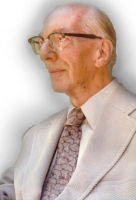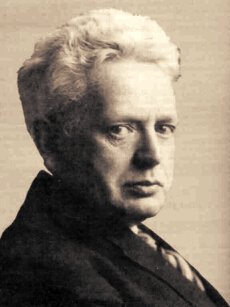
AnthonyFlood.com
Philosophy against Misosophy


A review of Ernst Cassirer, The Myth of the State, Yale University Press, 1946. From The Journal of Politics, Vol. 9, No. 3, August 1947, 445-447.
Posted May 13, 2008
Eric Voegelin
It is a melancholy task in more than one respect to review this posthumously published book of the late Ernst Cassirer. It is a cause for regret that this should be the last time the admiration and gratitude of the reader will be aroused by a new revelation of Cassirer’s vast erudition; it is a cause for reflection that the generation which carried an important phase in modern philosophy, that is the neo-Kantian movement, is passing away; and the reading of the book causes a certain nostalgia for from its pages breathes a sureness of intellectual position, a genteelness of philosophizing, which is rather the mark of a passing age than of the author. The task is melancholy also because this last book, perhaps more so than some of the earlier studies of Cassirer, leaves the reader with somewhat mixed feelings. The feeling of admiration for the great scholarship of the author will inevitably be mixed with a feeling of dismay caused by the evasion of fundamental issues.
The thesis of the book is based on a philosophy of history which is never made quite explicit. Cassirer seems to assume that the human mind evolves historically from an early mythical phase towards an increasingly rational penetration of the world; the idols of the myth give way to reason and science. There is a strong touch of Comte in this view of history, a touch which the reader can find already in Cassirer’s Das Mythische Denken (Philosophie der Symbolischen Formen, Vol. II, 1925). Now again Cassirer evokes the Comtean vision of crowning the edifice of science by a social science that will dispel the last shadows of the idola fori, the vision of a science that will bring to the study of society the same ways of reasoning, the same exactness of method that we find in physics and chemistry (p. 295). These hopes of “Comte and of his pupils and adherents,” however, proved to be “premature.” The sudden rise of political myths in the twentieth century proves that “politics is still far from being a positive science, let alone an exact science.” Myth seems to be a permanently lurking force in the universe. Culture can only arise when the “darkness of myth” is fought and overcome “by superior forces.” When these forces, “intellectual, ethical and artistic,” lose their strength, chaos will break forth and the myth will again pervade “man’s cultural and social life” (p. 298).
This argument reveals both the strength and weakness of Cassirer’s position. The disengagement of philosophy and science from the ancient myth is, indeed, a trend in intellectual history, correctly observed by Turgot and Comte; but it is no more than one “thread” (Turgot) in a rich historical fabric. Cassirer’s transfiguration of this Comtean idea into something like an Eastern struggle between the forces of Light and Darkness radiates a curious ambivalence on his concrete analyses. His concrete studies are always at their best when they describe the disengagement of consciousness from the myth; they are of doubtful value when it comes to the description of the new myth which takes the place of the old one. The study on Plato (Ch. VI), for instance, is admirable in characterizing Plato’s struggle against the disintegrating myth of the people; it is blind to the new myth of the Socratic soul which forms the substance of Plato’s own position. The extended study of Machiavelli (Chs. X-XII) is excellent when it describes the disappearance of the spiritual, hierarchical conception of political order and the emergence of the new center of the state in the political activist; but Cassirer has achieved the almost incredible feat of forgetting about Machia-velli’s myth of the demoniacally closed personality and its virtue. Even when he describes the emergence of a new myth, as for instance in the fine characterization of Carlyle as a derailed Calvinist for whom the human hero has taken the place of an overpowering God, he seems to be insensitive to the inner movement of mythical creations: that the new myth emerges because the old myth has disinteg-rated. In the present book there is no awareness that the myth is an indispensable forming element of social order though, curiously enough, in his earlier work on the philosophy of the myth Cassirer, under the influence of Schelling, had seen this problem quite clearly. The overcoming of the “darkness of myth” by reason is in itself a problematical victory because the new myth which inevitably will take the place of the old one may be highly unpleasant. The Myth of the State is written as if it had never occurred to the author that tampering with a myth, unless one has a better one to put in its place, is a dangerous pastime.
These criticisms are necessary in order to characterize the book as a whole; they are not meant to detract from the great achievements in details. Cassirer’s studies are always valuable as far as they go. And there is one section in the book, the study on Carlyle, which is a worthy companion to earlier gems of Cassirer’s art as a historian, such as the studies on Goethe and Mathematical Physics, or Hoelderlin and German Idealism. A future editor might do a great service by collecting these masterpieces of Cassirer and making them accessible to the English speaking public.